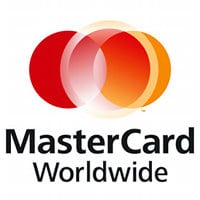The ‘Tech Nation’ poll of consumers in eight European nations found that both mobile and contactless payments are used most widely in Russia and Turkey while only 5% of British consumers say they have made a contactless card payment.

A survey of consumers in eight European countries has found that both mobile and contactless payments are most widely used by Russian and Turkish shoppers while adoption is lowest in the UK and France.
The MasterCard Worldwide ‘Tech Nation’ poll was conducted by Ipsos Mori amongst 8,000 adults aged from 16 to 64 across Great Britain, Turkey, Russia, France, Spain, the Netherlands, Germany and Italy.
The survey found that:
- Turkey and Russia top the table of tech for mobile payment technologies with adoption running at 31% in Russia and 13% in Turkey. The leaders are followed by Spain (11%), the Netherlands and Italy (8%), Germany (7%), Great Britain (6%) and France (4%).
- Russia (12%) and Turkey (10%) also have the greatest uptake of contactless payment technologies, followed by Spain, the Netherlands and Germany at 9%, Italy (6%), Great Britain (5%) and France (4%). Consumers in Russia (44%), the Netherlands (47%) and Germany (44%) use contactless payments most frequently — on a daily or weekly basis.
- Great Britain and the Netherlands make the greatest use of online payments, with both running at 78%. Russia lags behind the other countries surveyed on ecommerce payments, at 49%.
- Use of cards is still strong across most countries, with card usage lowest in the Netherlands (43%).
- The use of cheques is still prevalent in France (75%) and Britain (56%) whilst in Russia, Turkey and the Netherlands this figure is just 4%.
- Cash use remains high in all countries with the exception of the Netherlands (43%), where consumers using payment technologies such as contactless, mobile and ecommerce tend to use these methods more frequently than people in most other countries.
“The research demonstrates that whilst cash and cards still have a place in the wallets of consumers across these countries, the adoption of new payment technologies is on the rise,” says MasterCard’s Jorn Lambert. “It is perhaps no surprise that countries like Turkey — known to be early adopters of new technology — are using the newest methods of payment. However it is interesting to note that countries like Russia, France and Italy are also embracing the convenience of mobile payments.
“One thing is certain — as consumers continue to drive the move towards more convenient, faster payment technologies, the use of mobile, internet and contactless payments is only set to rise.”
Next: Visit the NFCW Expo to find new suppliers and solutions
Are you sure you have reported this correctly Sarah? Are you sure that 44% of German consumers use contactless payments on a “daily or weekly” basis?
Hi Dave.
I’ve double checked the press release from MasterCard and it does indeed say that 44% of German consumers use contactless payments on a “daily or weekly basis”. Here’s a link to the full release:
http://newsroom.mastercard.com/press-releases/mastercard-sheds-light-on-consumer-payment-preferences-at-cartes-identification-2011/
I can see why you thought there might be a mistake, though, as it does sound like a very high usage rate. I’ll see if MasterCard can provide any further information on this.
Is there a link to the full Tech Nation poll results? I’d like to know what their definitions are for ‘cards’: is that just credit cards or both credit and debit?
Why is ‘ecommerce’ mentioned in the last bullet point as if it’s an alternative to cash? You can’t use cash in an ecommerce transaction (online) and you can’t use ecommerce payments at a PoS cash register, so I fail to see how adoption of one is an explanation for decline of the other.
Dear Jacob
I don’t have the full report but there is more information in the press release here:
http://newsroom.mastercard.com/press-releases/mastercard-sheds-light-on-consumer-payment-preferences-at-cartes-identification-2011/
I hope that helps.
Thank you for the link, Sarah. I find the Mastercard data very hard to believe though. Only 87% of Germans and Dutch people used cash in the past few YEARS? I think you’d be very hard pressed to find people who can go cashless for multiple years. Who were the respondents, people in prison maybe?
I think the writer of the press release might have mixed up some facts or figures, hopefully they’ll release the full report soon.